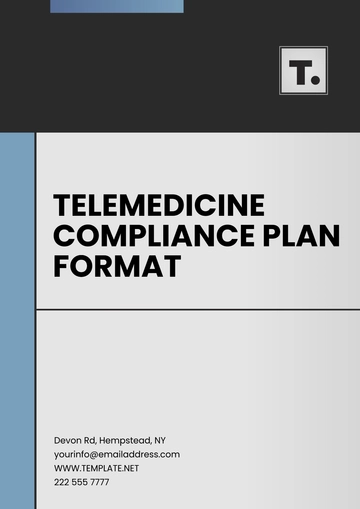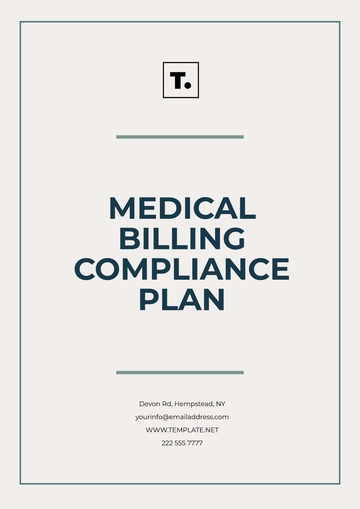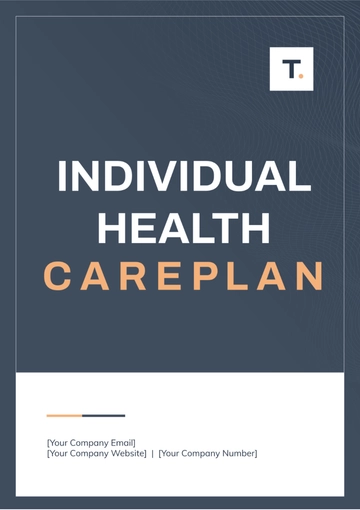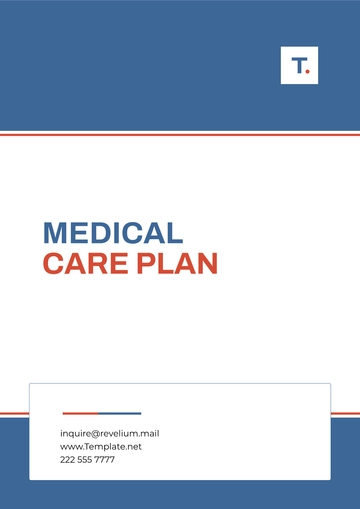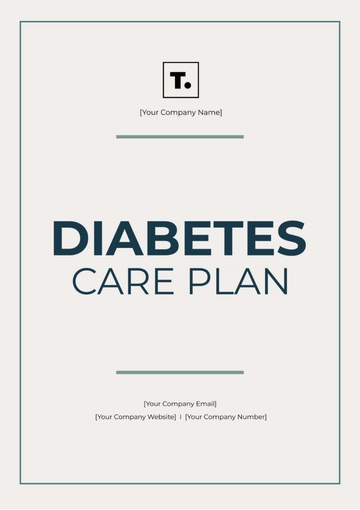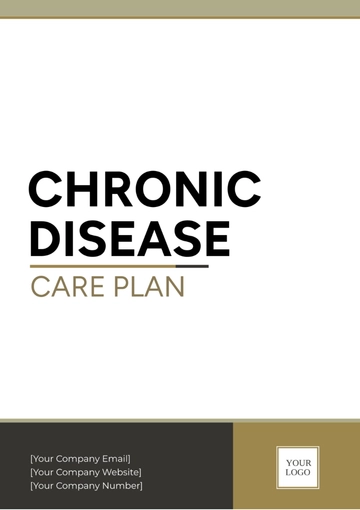Free Diabetes Care Plan
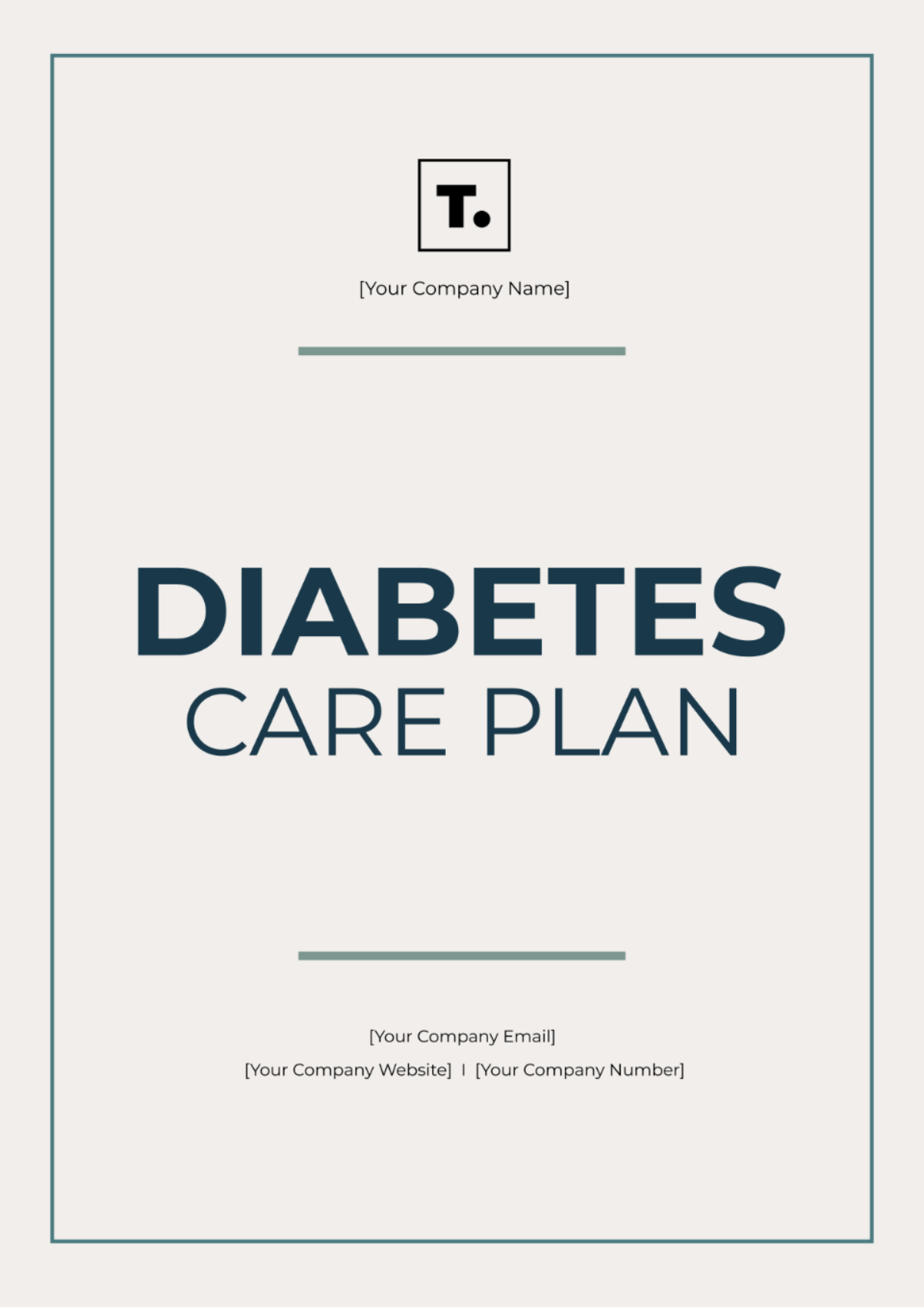
Prepared by: [Your Name]
Date: [Date]
I. Patient Information:
Name: [Patient's Name]
Age: [Age]
Gender: [Gender]
Diagnosis: Type 2 Diabetes
Date of Diagnosis: June 10, 2055
Medical History: Hypertension, family history of diabetes
II. Health Assessment:
Current Symptoms: Fatigue, increased thirst, frequent urination
Vital Signs:
Blood Pressure: 140/90 mmHg
Blood Glucose Levels: Fasting glucose 180 mg/dL
Weight: 180 lbs
Physical Examination Findings: BMI 30 (Obese), peripheral neuropathy noted in lower extremities
III. Goals:
Achieve and maintain blood glucose levels within the target range of 80-130 mg/dL.
Educate the patient about diabetes management, including dietary modifications and lifestyle changes.
Monitor and manage blood pressure to reduce the risk of cardiovascular complications.
Promote weight management through healthy eating habits and regular physical activity.
Prevent complications associated with diabetes, such as neuropathy, nephropathy, and retinopathy.
IV. Interventions
A. Education and Counseling
Provided comprehensive education about diabetes, its causes, symptoms, and management strategies.
Discussed the importance of monitoring blood glucose levels regularly and interpreting the results.
Educated the patient about dietary modifications, including portion control, carbohydrate counting, and meal timing.
Encouraged the patient to engage in regular physical activity, such as walking or swimming, for at least 30 minutes a day.
Offered emotional support and counseling to address concerns related to the diagnosis.
B. Medication Management
Initiated pharmacological therapy with Metformin 500 mg twice daily as prescribed by the physician.
Educated the patient about the purpose, dosage, administration, and potential side effects of Metformin.
Emphasized the importance of medication adherence and regular follow-up appointments for monitoring and adjustments.
C. Nutritional Therapy
Referred the patient to a registered dietitian for personalized meal planning and nutritional guidance.
Emphasized the importance of a balanced diet rich in fruits, vegetables, whole grains, lean proteins, and healthy fats.
Provided resources and tools for meal planning, portion control, and carbohydrate counting.
Encouraged the patient to limit the intake of sugary beverages, processed foods, and high-fat snacks.
Sample Meal Plan
Meal | Food Items | Portion Size |
|---|---|---|
Breakfast | Whole-grain toast, eggs, spinach | 2 slices, 2 eggs, 1 cup |
Snack | Greek yogurt, berries, almonds | 1 cup, 1/2 cup, 1 oz |
Lunch | Grilled chicken salad, vinaigrette | 4 oz chicken, mixed greens, 2 tbsp |
Snack | Carrot sticks, hummus | 1 cup, 2 tbsp |
Dinner | Baked salmon, quinoa, steamed broccoli | 6 oz salmon, 1/2 cup, 1 cup |
Snack (optional) | Apple slices, peanut butter | 1 medium apple, 2 tbsp |
D. Physical Activity
Collaborated with a certified exercise physiologist to develop a personalized exercise plan.
Recommended a combination of aerobic exercise, strength training, and flexibility exercises.
Advised the patient to aim for at least 150 minutes of moderate-intensity aerobic activity per week, spread over at least three days.
Stressed the importance of regular physical activity in improving insulin sensitivity, managing weight, and reducing cardiovascular risk.
Exercise Plan
Exercise Type | Frequency | Duration | Intensity |
|---|---|---|---|
Aerobic (e.g., walking, swimming) | 5 days/week | 30-45 minutes/session | Moderate |
Strength training (e.g., weightlifting) | 2-3 days/week | 20-30 minutes/session | Moderate to high |
Flexibility (e.g., yoga, stretching) | Daily | 10-15 minutes/session | Low |
E. Monitoring and Follow-Up
Scheduled regular follow-up appointments to monitor the patient's progress, adjust treatment plans, and address any concerns.
Conducted ongoing assessments of blood glucose levels, blood pressure, weight, and other relevant parameters.
Reviewed and reinforced diabetes self-management skills, including medication adherence, blood glucose monitoring, and lifestyle modifications.
Collaborated with other members of the healthcare team to ensure comprehensive care and support.
V. Evaluation:
Monitored the patient's adherence to the care plan and assessed progress toward achieving established goals.
Reviewed the effectiveness of interventions in controlling blood glucose levels, improving cardiovascular risk factors, and promoting overall health and well-being.
Adjusted the care plan as needed based on the patient's response to treatment, changes in health status, and evolving needs and preferences.
VI. Patient Education and Resources:
Provided educational materials, online resources, and support groups for additional information and support.
Encouraged the patient to engage in self-management activities and take an active role in their diabetes care.
Offered resources for diabetes monitoring tools, medication reminders, and mobile applications for tracking diet, exercise, and glucose levels.
VII. Care Plan Review Date
The next review is scheduled for December 2055.
- 100% Customizable, free editor
- Access 1 Million+ Templates, photo’s & graphics
- Download or share as a template
- Click and replace photos, graphics, text, backgrounds
- Resize, crop, AI write & more
- Access advanced editor
Discover the ultimate Diabetes Care Plan Template on Template.net! Crafted with precision for seamless management, it's fully editable and customizable to fit your unique needs. With our Ai Editor Tool, effortlessly tailor every detail. Empower your journey to wellness with this comprehensive solution, designed to streamline and simplify your diabetes care routine.
You may also like
- Finance Plan
- Construction Plan
- Sales Plan
- Development Plan
- Career Plan
- Budget Plan
- HR Plan
- Education Plan
- Transition Plan
- Work Plan
- Training Plan
- Communication Plan
- Operation Plan
- Health And Safety Plan
- Strategy Plan
- Professional Development Plan
- Advertising Plan
- Risk Management Plan
- Restaurant Plan
- School Plan
- Nursing Home Patient Care Plan
- Nursing Care Plan
- Plan Event
- Startup Plan
- Social Media Plan
- Staffing Plan
- Annual Plan
- Content Plan
- Payment Plan
- Implementation Plan
- Hotel Plan
- Workout Plan
- Accounting Plan
- Campaign Plan
- Essay Plan
- 30 60 90 Day Plan
- Research Plan
- Recruitment Plan
- 90 Day Plan
- Quarterly Plan
- Emergency Plan
- 5 Year Plan
- Gym Plan
- Personal Plan
- IT and Software Plan
- Treatment Plan
- Real Estate Plan
- Law Firm Plan
- Healthcare Plan
- Improvement Plan
- Media Plan
- 5 Year Business Plan
- Learning Plan
- Marketing Campaign Plan
- Travel Agency Plan
- Cleaning Services Plan
- Interior Design Plan
- Performance Plan
- PR Plan
- Birth Plan
- Life Plan
- SEO Plan
- Disaster Recovery Plan
- Continuity Plan
- Launch Plan
- Legal Plan
- Behavior Plan
- Performance Improvement Plan
- Salon Plan
- Security Plan
- Security Management Plan
- Employee Development Plan
- Quality Plan
- Service Improvement Plan
- Growth Plan
- Incident Response Plan
- Basketball Plan
- Emergency Action Plan
- Product Launch Plan
- Spa Plan
- Employee Training Plan
- Data Analysis Plan
- Employee Action Plan
- Territory Plan
- Audit Plan
- Classroom Plan
- Activity Plan
- Parenting Plan
- Care Plan
- Project Execution Plan
- Exercise Plan
- Internship Plan
- Software Development Plan
- Continuous Improvement Plan
- Leave Plan
- 90 Day Sales Plan
- Advertising Agency Plan
- Employee Transition Plan
- Smart Action Plan
- Workplace Safety Plan
- Behavior Change Plan
- Contingency Plan
- Continuity of Operations Plan
- Health Plan
- Quality Control Plan
- Self Plan
- Sports Development Plan
- Change Management Plan
- Ecommerce Plan
- Personal Financial Plan
- Process Improvement Plan
- 30-60-90 Day Sales Plan
- Crisis Management Plan
- Engagement Plan
- Execution Plan
- Pandemic Plan
- Quality Assurance Plan
- Service Continuity Plan
- Agile Project Plan
- Fundraising Plan
- Job Transition Plan
- Asset Maintenance Plan
- Maintenance Plan
- Software Test Plan
- Staff Training and Development Plan
- 3 Year Plan
- Brand Activation Plan
- Release Plan
- Resource Plan
- Risk Mitigation Plan
- Teacher Plan
- 30 60 90 Day Plan for New Manager
- Food Safety Plan
- Food Truck Plan
- Hiring Plan
- Quality Management Plan
- Wellness Plan
- Behavior Intervention Plan
- Bonus Plan
- Investment Plan
- Maternity Leave Plan
- Pandemic Response Plan
- Succession Planning
- Coaching Plan
- Configuration Management Plan
- Remote Work Plan
- Self Care Plan
- Teaching Plan
- 100-Day Plan
- HACCP Plan
- Student Plan
- Sustainability Plan
- 30 60 90 Day Plan for Interview
- Access Plan
- Site Specific Safety Plan
